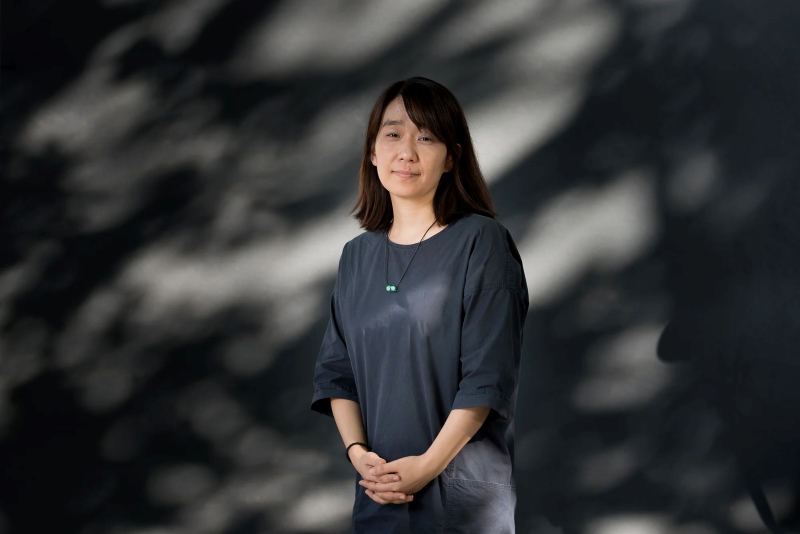
ហាន កាង ឈ្នះរង្វាន់ណូបែលផ្នែកអក្សរសាស្ត្រសម្រាប់ “ការនិយាយកំណាព្យខ្លាំង” ប្រឈមមុខនឹងភាពផុយស្រួយរបស់មនុស្ស

Han Kang អ្នកនិពន្ធជនជាតិកូរ៉េខាងត្បូងអាយុ 53 ឆ្នាំបានទទួលរង្វាន់ណូបែលផ្នែកអក្សរសាស្ត្រសម្រាប់ការនិយាយដ៏ទាក់ទាញនិងកំណាព្យរបស់នាងដែលនិយាយអំពីភាពផុយស្រួយនៃអត្ថិភាពរបស់មនុស្ស។ Han បានចាប់ផ្តើមដំណើរអក្សរសាស្ត្ររបស់នាងជាមួយនឹងការប្រមូលកំណាព្យដែលបានបោះពុម្ពផ្សាយនៅក្នុងទស្សនាវដ្ដីកូរ៉េខាងត្បូងមួយ មុនពេលបង្ហាញខ្លួនជាលើកដំបូងនៅក្នុងឆ្នាំ 1995 ជាមួយនឹងការប្រមូលរឿងខ្លី។
ក្រោយមកនាងបានប្តូរទៅជាការនិយាយវែងជាង ដោយទទួលបានការទទួលស្គាល់ជាអន្តរជាតិជាមួយនឹងប្រលោមលោករបស់នាង The Vegetarian។ ការងារនេះ ដែលជាស្នាដៃមួយក្នុងចំណោមការបកប្រែជាភាសាអង់គ្លេសលើកដំបូងរបស់នាង បានឈ្នះពានរង្វាន់អន្តរជាតិ Man Booker ក្នុងឆ្នាំ 2016។ ប្រលោមលោកនេះស្វែងយល់ពីជីវិតរបស់នារីវ័យក្មេងម្នាក់ដែលសម្រេចចិត្តទទួលយករបៀបរស់នៅបែប “ដូចរុក្ខជាតិ” បន្ទាប់ពីជួបប្រទះសុបិន្តអាក្រក់ដ៏គួរឱ្យខ្លាចអំពីភាពឃោរឃៅរបស់មនុស្ស។
ជាមួយនឹងពានរង្វាន់នេះ Han ក្លាយជាអ្នកនិពន្ធជនជាតិកូរ៉េខាងត្បូងដំបូងគេដែលបានទទួលរង្វាន់ណូបែលផ្នែកអក្សរសាស្ត្រ ហើយមានតែស្ត្រីទី 18 ប៉ុណ្ណោះដែលបានឈ្នះពានរង្វាន់នេះក្នុងចំណោម 117 រង្វាន់ដែលបានផ្តល់តាំងពីឆ្នាំ 1901 ។ រង្វាន់ដែលត្រូវបានប្រកាសនៅប្រទេសស៊ុយអែតកាលពីថ្ងៃព្រហស្បតិ៍ រួមមានសាច់ប្រាក់មួយ ពានរង្វាន់ 11 លានក្រូនស៊ុយអែត (ប្រហែល 1 លានដុល្លារ) ។
ការសរសេរជាច្រើនរបស់ Han ចោទជាសំណួរយ៉ាងស៊ីជម្រៅអំពីអត្ថិភាព ដូចជាតួអង្គមួយនៅក្នុងប្រលោមលោក Europa ឆ្នាំ 2019 របស់នាង៖ “ប្រសិនបើអ្នកអាចរស់នៅតាមដែលអ្នកចង់បាន តើអ្នកនឹងធ្វើអ្វីជាមួយជីវិតរបស់អ្នក?”
ខណៈពេលដែលតួឯកជាច្រើនរបស់នាងជាស្ត្រី ហាន់តែងតែរៀបរាប់រឿងរបស់នាងតាមទស្សនៈរបស់តួអង្គបុរស ដោយបន្ថែមភាពស្មុគស្មាញដល់ការស្វែងរកអត្តសញ្ញាណ និងបទពិសោធន៍របស់នាង។
Han Kang, a 53-year-old South Korean author, has been awarded the Nobel Prize in Literature for her compelling and poetic prose that addresses the fragility of human existence. Han began her literary journey with a collection of poems published in a South Korean magazine before making her prose debut in 1995 with a short story collection.
She later transitioned to longer prose, gaining international recognition with her novel The Vegetarian. This work, one of her first translated into English, won the Man Booker International Prize in 2016. The novel explores the life of a young woman who decides to adopt a more “plant-like” lifestyle after experiencing haunting nightmares about human cruelty.
With this accolade, Han becomes the first South Korean author to receive the Nobel Prize in Literature and only the 18th woman to win this honor out of the 117 prizes awarded since 1901. The prize, which was announced in Sweden on Thursday, includes a cash award of 11 million Swedish kronor (approximately $1 million).
Much of Han’s writing raises profound questions about existence, such as the one posed by a character in her 2019 novel Europa: “If you were able to live as you desire, what would you do with your life?”
While many of her protagonists are women, Han often narrates her stories from the perspectives of male characters, adding complexity to her exploration of identity and experience.
